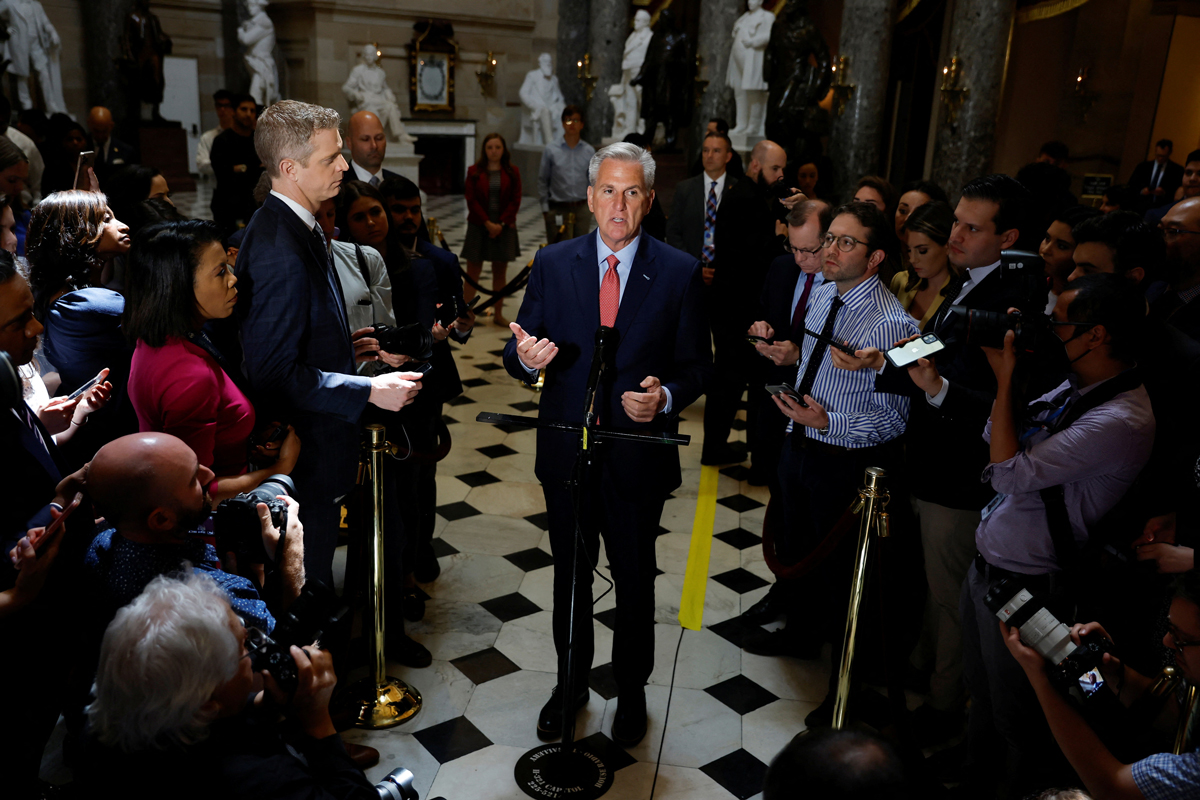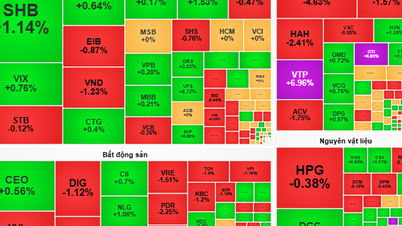Negotiators from the Democratic and Republican parties are stepping up efforts to find a deal to raise the US debt ceiling (currently at $31.4 trillion) to help the US avoid default. After a four-hour meeting at the White House on May 24 (local time), US House Speaker Kevin McCarthy said negotiations are progressing and will continue.
He also predicted that the two sides will reach an agreement, although some issues remain unresolved. Meanwhile, White House press secretary Karine Jean-Pierre is also optimistic about the possibility of finding common ground if negotiations continue in good faith.
Still, the White House and Democrats have accused Republicans of holding the economy hostage to advance their agenda. They say Republicans need to make more concessions because they will need Democratic votes to pass any deal.
In response, Mr. McCarthy emphasized that any agreement must not raise taxes and must cut some US government spending (about 8% for fiscal year 2024, starting in October 2023), instead of keeping it at this year's level as required by the Democratic Party.

US House Speaker Kevin McCarthy speaks to the media in Washington on May 24. Photo: REUTERS
Reuters said time was running out for negotiations. The US Treasury Department warned that the government could default on its debt as early as June 1, while passing related legislation in a divided Congress could take time.
The White House estimates that a prolonged default could cost 8.3 million jobs and push the economy into recession, which would have a negative impact on the rest of the world. Meanwhile, Moody's Analytics estimates that a default lasting less than a week could result in the loss of 1.5 million jobs.
Separately, the US credit rating agency Fitch Ratings warned on May 24 that the deadlock in debt ceiling negotiations could negatively affect the credit rating of the world's largest economy.
Fitch has placed the US AAA credit rating on “watch for downgrade”, reflecting concerns about the current debt ceiling negotiations and the possibility of a first-ever default. The agency also forecasts that the US government will continue to spend more than it earns, leading to a budget deficit equivalent to 6.5% of GDP in 2023 and 6.9% of GDP in 2024.
Another credit rating agency, Moody's (USA), currently also gives the highest "AAA" rating to the US credit, expecting Washington to continue to pay its debts on time. However, public statements from lawmakers during the debt ceiling negotiations could force the agency to change its assessment.
Meanwhile, the US credit rating agency Standard & Poor's has maintained the US credit rating at AA+, one level lower than AAA. Previously, Standard & Poor's had downgraded the US credit rating when the country was on the brink of default in 2011, causing a wave of sell-offs in the stock market.
Mr. George Mateyo, Chief Investment Officer at Key Private Bank (USA), commented that it would not be surprising if the 2011 scenario repeated itself, and warned that the current deadlock could lead to a strong loss of confidence in the US financial system.
Source





























































































Comment (0)